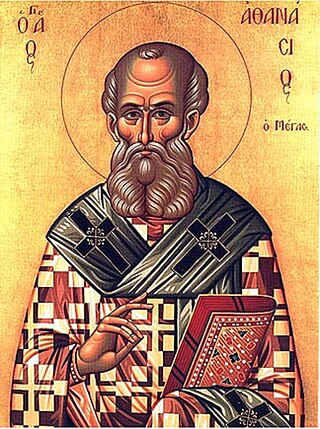
Athanasius I of Alexandria, also called Athanasius the Great, Athanasius the Confessor, or, among Coptic Christians, Athanasius the Apostolic, was a church father and the 20th pope of Alexandria. His intermittent episcopacy spanned 45 years, of which over 17 encompassed five exiles, when he was replaced on the order of four different Roman emperors. Athanasius was a Christian theologian, a Church Father, the chief defender of Trinitarianism against Arianism, and a noted Egyptian Christian leader of the fourth century.
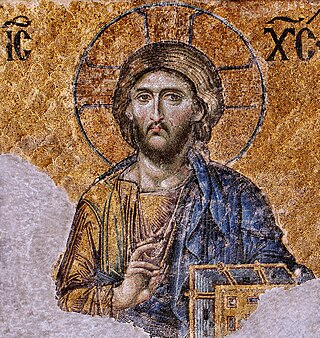
The First Council of Nicaea was a council of Christian bishops convened in the Bithynian city of Nicaea by the Roman Emperor Constantine I in AD 325.
The 310s decade ran from January 1, 310, to December 31, 319.
The 320s decade ran from January 1, 320, to December 31, 329.

Year 325 (CCCXXV) was a common year starting on Friday of the Julian calendar. At the time, it was known as the Year of the Consulship of Proculus and Paulinus. The denomination 325 for this year has been used since the early medieval period, when the Anno Domini calendar era became the prevalent method in Europe for naming years.

Year 313 (CCCXIII) was a common year starting on Thursday of the Julian calendar. At the time, it was known as the Year of the Consulship of Constantinus and Licinianus. The denomination 313 for this year has been used since the early medieval period, when the Anno Domini calendar era became the prevalent method in Europe for naming years. This year is notable for ending of the persecution of Christians in the Roman Empire.

Year 399 (CCCXCIX) was a common year starting on Saturday of the Julian calendar. At the time, it was known as the Year of the Consulship of Eutropius and Theodorus. The denomination 399 for this year has been used since the early medieval period, when the Anno Domini calendar era became the prevalent method in Europe for naming years.
The 330s decade ran from January 1, 330, to December 31, 339.
The 340s decade ran from January 1, 340, to December 31, 349.
Year 283 (CCLXXXIII) was a common year starting on Monday of the Julian calendar. At the time, it was known as the Year of the Consulship of Carus and Carinus. The denomination 283 for this year has been used since the early medieval period, when the Anno Domini calendar era became the prevalent method in Europe for naming years.
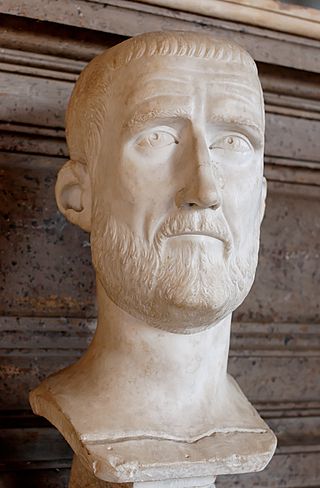
Year 276 (CCLXXVI) was a leap year starting on Saturday of the Julian calendar. At the time, it was known as the Year of the Consulship of Tacitus and Aemilianus. The denomination 276 for this year has been used since the early medieval period, when the Anno Domini calendar era became the prevalent method in Europe for naming years.
Year 256 (CCLVI) was a leap year starting on Tuesday of the Julian calendar. At the time, it was known as the Year of the Consulship of Claudius and Glabrio. The denomination 256 for this year has been used since the early medieval period, when the Anno Domini calendar era became the prevalent method in Europe for naming years.
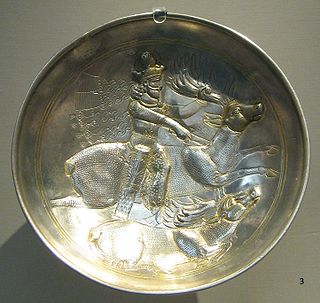
Year 371 (CCCLXXI) was a common year starting on Saturday of the Julian calendar. At the time, it was known as the Year of the Consulship of Augustus and Petronius. The denomination 371 for this year has been used since the early medieval period, when the Anno Domini calendar era became the prevalent method in Europe for naming years.

Year 306 (CCCVI) was a common year starting on Tuesday of the Julian calendar. At the time, it was known as the Year of the Consulship of Constantius and Valerius. The denomination 306 for this year has been used since the early medieval period, when the Anno Domini calendar era became the prevalent method in Europe for naming years.

Year 310 (CCCX) was a common year starting on Sunday of the Julian calendar. At the time, it was known as the Year of the Consulship of Andronicus and Probus. The denomination 310 for this year has been used since the early medieval period, when the Anno Domini calendar era became the prevalent method in Europe for naming years.

Year 311 (CCCXI) was a common year starting on Monday of the Julian calendar. At the time, it was known as the Year of the Consulship of Valerius and Maximinus. The denomination 311 for this year has been used since the early medieval period, when the Anno Domini calendar era became the prevalent method in Europe for naming years.
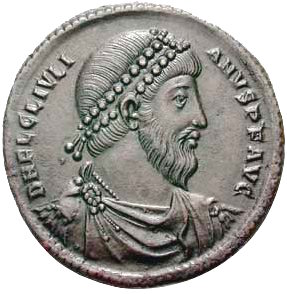
Year 361 (CCCLXI) was a common year starting on Monday of the Julian calendar. At the time, it was known as the Year of the Consulship of Taurus and Florentius. The denomination 361 for this year has been used since the early medieval period, when the Anno Domini calendar era became the prevalent method in Europe for naming years.
Year 339 (CCCXXXIX) was a common year starting on Monday of the Julian calendar. At the time, it was known as the Year of the Consulship of Constantius and Claudius. The denomination 339 for this year has been used since the early medieval period, when the Anno Domini calendar era became the prevalent method in Europe for naming years.

Year 335 (CCCXXXV) was a common year starting on Wednesday of the Julian calendar. At the time, it was known as the Year of the Consulship of Constantius and Albinus. The denomination 335 for this year has been used since the early medieval period, when the Anno Domini calendar era became the prevalent method in Europe for naming years.

Arius was a Cyrenaic presbyter, ascetic, and priest best known for the doctrine of Arianism. His teachings about the nature of the Godhead in Christianity, which emphasized God the Father's uniqueness and Christ's subordination under the Father, and his opposition to what would become the dominant Christology made him a primary topic of the First Council of Nicaea convened by Emperor Constantine the Great in 325.











